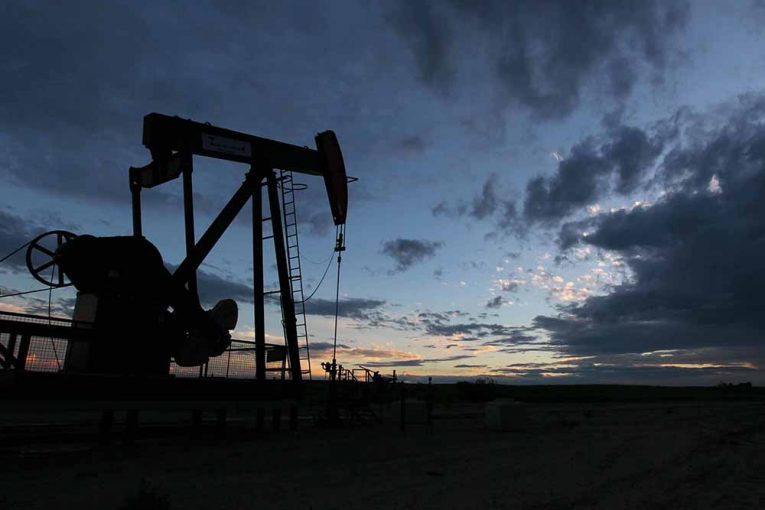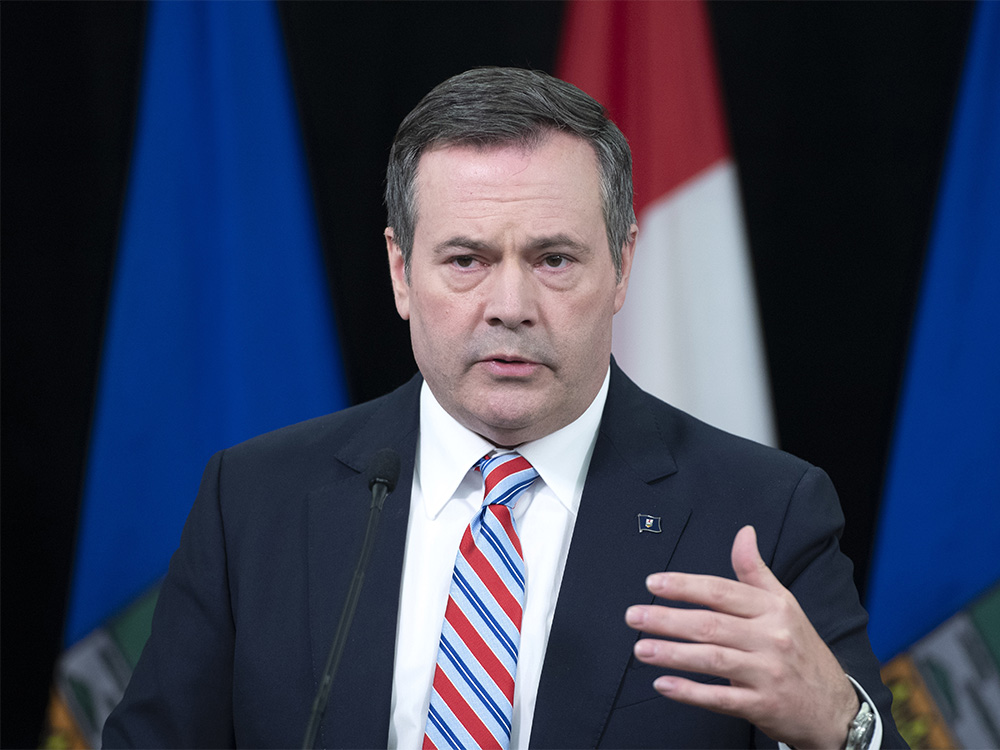
Premier Jason Kenney offered his sympathies Friday to those who have been affected by the latest round of layoffs and buyouts in the province’s energy sector, but added he is confident the industry will return to profitability and begin rehiring in the not-so-distant future.
It has been a difficult week for Alberta’s oil and gas sector, with news that Ovintiv, the company formerly known as Encana,
has laid off 25 per cent of its workforce
due to the effects of COVID-19 and the global oil price crash. Ovintiv, which moved its corporate domicile from Calgary to Denver earlier this year and now has around 2,100 employees and contractors, said the job losses would be evenly spread across its offices in Calgary, Denver and The Woodlands, Texas.
Also this week,
pipeline giant Enbridge confirmed
about 800 employees have agreed to take voluntary buyouts, a move the company said should prevent it from having to pursue company-wide layoffs at this time. The company said the buyouts were necessary due to the “unprecedented nature of this crisis,” adding the pandemic and oil price shock have resulted in significantly decreased volumes in its liquids business.
In addition to Ovintiv and Enbridge, there have been a number of other job losses in the energy sector recently. Suncor Energy spokeswoman Erin Rees confirmed Thursday some workers have been affected by reorganizations and redundancies, though she said the number of job losses amounts to less than half a per cent of the company’s approximately 13,000 employees.
Shell Canada spokeswoman Tara Lemay said “permanent redundancies” will be the result of an ongoing restructuring, which began before the COVID-19 pandemic, within Shell’s Shales division. She declined to say how many positions will be affected, saying only that Shell Canada has managed to avoid structural layoffs during the pandemic while introducing a voluntary severance program.
“In some areas, we have already reduced our contractor workforce and may need to consider further job reductions to remain competitive and resilient,” Lemay said in an email.
Calgary-based Seven Generations Energy, which had approximately 245 employees prior to the pandemic, confirmed this week it has reduced staffing numbers by just under eight per cent to reflect reduced activity levels and its decreased 2020 capital spending program.

On Friday, Kenney told reporters that “our hearts go out to employees at those and other companies,” though he acknowledged the job losses are not surprising.
“This is something I think we’ve all seen coming,” he said. “This is the greatest economic contraction since the Great Depression and it has hit our largest industry, oil and gas, especially hard.”
Kenney said he expects the federal government to announce changes as early as next week that should make it easier for oil and gas companies to access bridge loans through the Business Development Bank of Canada and Export Development Canada. Those agencies have programs that are meant to help companies with liquidity concerns through the COVID-19 crisis, but Kenney said so far, very few oil and gas firms have been successful in accessing funding.
Kenney said while there is no underestimating the gravity of the crisis facing Alberta’s energy sector, the good news is that over the last two months, oil prices have rebounded from negative territory to the mid-to-high $30 per barrel. He said at current prices, most producers should be able to at least survive until global oil demand rebounds, which should happen at some point over the course of the next year.
“There is a silver lining here that is starting to become evident,” Kenney said. “In the mid-term, we can certainly see a path towards a significant recovery in price where these good Canadian companies can return a profit and reinvest and hire people back.”
Oil and gas producers have slashed billions of dollars from their capital budgets since the start of the COVID-19 crisis and the global oil price crash. The Canadian Association of Petroleum Producers has lowered its capital spending forecast for the sector this year to $23.3 billion, down from the $37 billion it predicted in January.
Petroleum Labour Market Information vice-president Carol Howes said there is so much uncertainty right now, it is very difficult to predict whether this latest wave of job losses in the energy sector has peaked, or if there will be more layoffs to come.
“It’s really dependent on what could happen, not just from an oil price environment, but also where will we end up with the COVID economic recovery,” Howes said. “If we have another spike with COVID and the situation changes so that we’re shutting down the economy for another period of time, that will have an impact.”
Related
Canada’s oil and gas industry hit peak employment in 2014, when about 226,000 people worked directly in the exploration, services and pipeline sectors. By May of 2020, that number had declined to 163,000, Howes said.
However, Howes said while it’s likely this summer will bring additional layoffs, 2020 will not be remembered for the same kind of large-scale job losses that were experienced in the sector in 2015-16.
“We won’t see the same sort of volume of layoffs that we’ve seen in years past, simply because we’re working very lean currently,” she said. “The employment numbers are much lower than they would have been at their peak. There’s simply not a lot of places to cut.”
Twitter.com/AmandaMsteph
You can read more of the news on source
